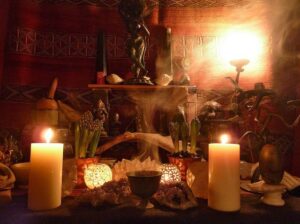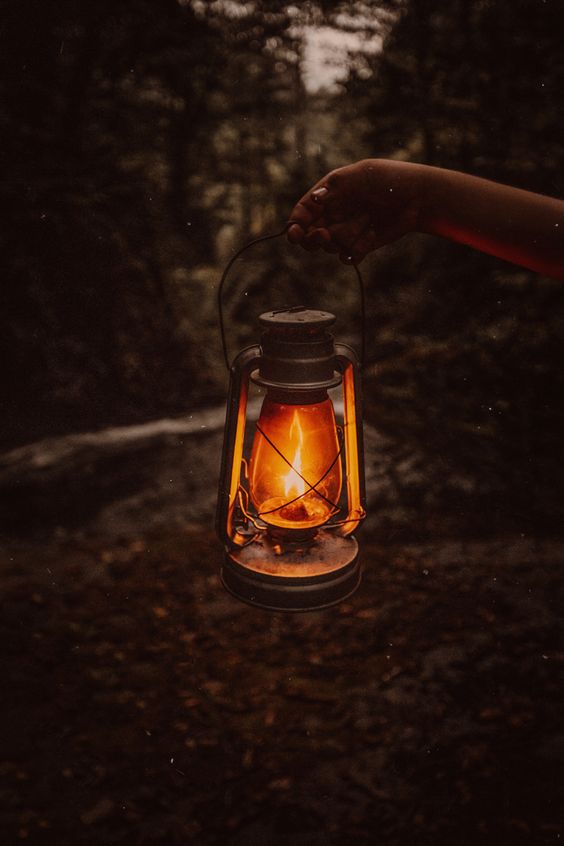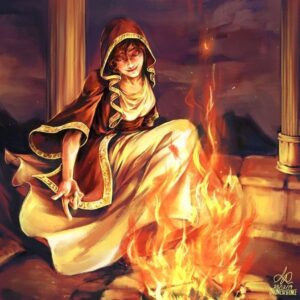The Goddess Hestia is the uniquely sound-of-mind, passive voice of reason in the Greek pantheon. Hestia is the sole attendant to the celestial hearth of the gods. She is also regarded as the “Chief of the Goddesses.”
She was not a central figure in many famous myths. However, Hestia’s undeniable influence on ancient Greco-Roman society established her as a champion in her day and time.
As the goddess of the hearth, she personified the fire burning in the hearth of every home in Greece. The goddess Hestia received the first offering at every sacrifice in the household. Families poured sweet wine in her name and dedicated the richest portion of food to her. According to lore, the hearth fire in the household couldn’t be extinguished unless the proper ritual to Hestia was conducted.
Today, we’ll learn all about the goddess Hestia. Though she isn’t as popular as many other deities, she is filled with secret knowledge and wisdom. Read on to know more about her origin, myths, and how to best work with this kind goddess.
The Goddess Hestia In History & Myth
Hestia, the daughter of Cronus and Rhea, is a goddess in the Olympian pantheon. She is the sister of Zeus, Poseidon, Hades, Demeter, and Hera. Hestia was the oldest of Cronus’ children, so he swallowed her first out of fear of losing his rule.
She had a reputation for being the kindest and most placid deity in the pantheon. Many critics dismissed her as “colorless” due to the scant details about her persona.
Still, Hestia was a minor but recurring figure in some Greek tales. The author of the Iliad and the Odyssey, Homer, completely left Hestia out of his writings. However, Apollodorus, Hesiod, and Ovid, among others, all make references to her in their poetry.
The Young Goddess Hestia
Hestia, the goddess of home and hearth, was an introvert who kept to herself. Yet she did have one distinguishing feature: she was personally opposed to marriage and having sexual relations with anyone.
Despite repeated erotic provocation from many major gods, she maintained her resolve. Her principles and choices were firm and unwavering, and she flatly turned down both Apollo and Poseidon. Hestia never gave in despite their persistent expressions of adoration and desire for her.
The goddess Hestia had firm convictions, as befitting a deity. She was impervious to any romantic siege, and nothing could fool her or deter her, unlike many other Greek goddesses. Her entire existence centered on providing for her loved ones and maintaining the sanctity of marriage, the family unit, and the house.
Lesser Known But Beloved Goddess
Hestia is one of the lesser-known deities in Greek mythology. As a virgin who rarely embarked on grand journeys, she didn’t go on expeditions or adventures across the country.
Greeks know Hestia for her kindness and for tending to the homestead with great care. Her popularity stems from the fact that her demeanor exemplified the kind of domesticity that is essential in the house to keep a warm and welcoming atmosphere.
Hestia was generous and kindhearted. Legend has it that Hestia gave her place on Mount Olympus to Dionysus, some people don’t count Dionysus among the original twelve Olympians because Hestia handed him her throne. According to modern-day occult lore, some witches consider Hestia to be the “secret” 13th deity on Mount Olympus.
Hestia, Goddess of the Home, Loved Ones, and the Hearth
Hestia is Greek for “hearth” or “fireside.” Because she was a sacred virgin, Hestia is identified with the hearth and the fire that burns within it, the “sacred flame.” It was thought that Hestia remained indoors and kept a constant flame going in the fireplace.
Her presence is in the kitchen, at the hearth, around fires, and at sacrifices. A portion of the offering or food in the house goes to her as thanks for helping to ignite the fire. A glass of wine is also dedicated to her in recognition of her efforts.
In general, thought Hestia is a virgin, she represents the family unit. She is the idea that the home is the basis from which one can travel. She represents that sacred flame within us that is lit at all times, even when we don’t see it, and the safe place that we can always come back to in order to be our most authentic selves.
Hestia and Aphrodite
It’s important to remember that Hestia was the antithesis of Aphrodite when we celebrate her as a virgin goddess.
Hestia, the goddess of the Greek household, represented all that was “good” in a Greek woman, at least based on puritan morality: purity, honesty, duty, modesty, and strength.
Then there’s Aphrodite, a woman who openly disobeys her marriage vows and bears children with other men. Unlike the goddess of the home, Aphrodite believes that “all is fair in love and war,” and interferes with the romantic lives of those around her.
Thus, Aphrodite is more of a force of nature. Meanwhile, Hestia tends to be based on cultural norms (at least by all appearances). Both deserve respect for what they do for people’s personal lives and society as a whole. And both goddesses are important since we all have both of these aspects within us.
Hestia and the Donkey
While the goddess Hestia was sleeping one night, the deity Priapos made sexual advances at her to discredit her chastity. During Priapos’s attempts to woo the goddess, the bleating of a donkey roused Hestia. She was able to make her plea for assistance. The gods as well as the other individuals in the house rushed to her aid. This protected Hestia’s chastity and innocence from any harm.
The ancient Greeks did not sacrifice donkeys at feasts in reverence of this tale. Instead, donkeys were honored with crowns and allowed to relax during these feasts.
Hestia’s Appearance:
You won’t often see Hestia in art, even if she appears with the Twelve Olympians. If she does appear, you’ll see the image of a shy, unassuming woman who wears a hood over her head. Sometimes she has staff in her hands, and other times she carries fire.
Hestia cared deeply for the well-being of families and the domestic issues of the community. Thus, her images are often subdued. Unlike her siblings and the other Greek gods, Hestia focused on her duties. But we now realize that there’s something wonderful about her appearance. She represents “flying under the radar” and the idea that one doesn’t need to show power to wield it.
In art, Hestia has a flower in her hand. Otherwise, she has a flame or candle in her hand to signify her connection to the element of fire.
Hestia’s Powers:
The compassionate goddess Hestia was responsible for maintaining harmony at home and a cooperative government among her many other duties. The hearth in the family home, the hearth in public establishments, and the ever-burning hearth on Mount Olympus are all under her sway, and legend has it that she even resides there.

Hestia was responsible for keeping an eye on the altar’s altar fire. Therefore, she makes sure that all sacrifices were accepted.
Since she presides over numerous significant domains and responsibilities, Hestia gets great respect and the finest portions of the sacrifices.
How Do You Know If The Goddess Hestia Is Calling To You?

How can you tell when a god or goddess is calling you, or when they want to work with you as a devotee? This is one of the most important questions that pagan followers ask themselves.
You can tell if Hestia is inviting you to her hearth by the following signs:
-You are already a kitchen witch, or you are in the process of becoming one.
-You love cooking and baking (especially bread) or want to learn these skills and spend time in the kitchen
-Fire and hearth imagery appears to you more often than usual
-You’ve always felt pulled to Hestia, even though she’s not one of the more “important” deities
-You see Hestia’s name pop up in obscure or strange places more often
-You’re focused on going within to uncover your own sacred flame
-You dream of fire, home, or hearth imagery, or Hestia herself
Symbols of Hestia
Symbols of Hestia commonly include anything relating to fire and to the home.
- The hearth, stove, and fireplace
- The kettle and cast iron pans
- The head veil
- The sacred or sacrificial flame
- Candle flames and lanterns
- Pigs and donkeys
- Datura (angel’s trumpet), yarrow, hollyhock, holly, and purple coneflower, and goldenrod
- Flowers such as lilacs, peonies, angelica, and irises
- Gemstones and metals including amethyst, garnet, gold, silver, and brass
- The home itself
How To Work With The Goddess Hestia:
On a very tangible level, Hestia rules the domain of fire. This means that she is directly responsible, at least according to the Greeks, for the fire, the stove, and the heat in your home. Hestia is great to work with in all of these areas. If you’re worried about heating your home or are installing a good stove, call on Hestia. The same goes for cooking, spending time by the hearth, etc.
As the deity of the home, Hestia can also help you find a new home/apartment or enhance your existing home in many ways.
Hestia is the ideal goddess to invoke when domestic strife is at hand or when safety for the family is at stake. And you may be sure that whoever is disturbing your loved ones is also insulting Hestia. Put your trust in her to keep danger away from your loved ones and property.

You may also wish to honor the goddess Hestia at home. She is the goddess of the kitchen, and as such, she will help you concoct sumptuous dishes and direct your efforts at the stove. Every meal you prepare is a tribute to her. That’s the simplest approach to interacting with Hestia.
Hestia is also a goddess of the art of baking. You don’t have to be a master baker to give breadmaking a try. A bread machine might be used, or you could go for easy bread recipes like bananas which do not require kneading. Offer the first slice of bread to Hestia. Bread flavored with fresh herbs, especially rosemary, thyme, and garlic, is a particular favorite of hers.
On a deeper and more spiritual level, Hestia can lead you into the inner realms of your own soul where your sacred flame resides. Her work is to discover the self by burning away anything unnecessary. Hestia does not care for pomp or circumstance, but only for the truth about oneself.
Devotional Acts to Hestia
Are you now ready to accept Hestia’s offer to work with her? Some examples of appropriate forms of worship to the goddess of the hearth are as follows:
Learn more about Hestia
Hestia doesn’t appear in many myths. Still, you should learn any and every information you can gather about the goddess of the hearth. But that involves more than simply researching Hestia; it also involves learning about the witchcraft of the hearth and kitchen in general. Consider learning the fundamentals of cooking, baking, etc., as well as herbalism and candle magic.
Devote space
Hestia, the Goddess of the Hearth, is most at home in the kitchen. A tiny shrine or dedicated area of your home is what we recommend as a suitable place for her. But if you use your fireplace for heating, that’s a nice location for her to stay, too. A simple candle, some incense, and an offering cup will do the trick.
Volunteer in the community
The home fireplace was just one of Hestia’s spheres of influence. It indicates that she is involved in the community at large. If you want to pay tribute to Hestia, you may spend some time helping animals in need. Or even better, at the neighborhood soup kitchen! Seek Hestia’s blessings and protection if you’re already involved in community work.
Traditions at home
All domestic matters are of interest to the goddess of hearth and home. You may offer home protection and cleansing rituals, as well as all domestic activities, in the name of Hestia. For example, create a powder to use as self-defense at home. Another option is to begin new family traditions and dedicate them to the goddess Hestia.

Prepare tea
Brewing tea is one of the most magical activities around the hearth, yet also one of the simplest! Hestia’s power will revitalize your teapot, tea leaves, and teacups. Make a special tea blended to commemorate Hestia using herbs and teas that you feel represent her energy.
Learn some hymns for Hestia
Almost every deity appreciates vocal offerings of praise and thanks. Recite some of her praises around the fire to appease Hestia, such as the Homeric Hymn 24.
Homeric Hymn 24:
“Hestia, you who tend the holy house of the lord Apollon, the Far-shooter at goodly Pytho, with soft oil dripping ever from your locks, come now into this house, come, having one mind with Zeus the all-wise–draw near, and withal bestow grace upon my song.”
Offerings For Hestia:
Young cows were once sacrificed to Hestia, although this may not be feasible now. Wine, olive oil, and fruit are all suitable alternatives when making an offering.

Light – If you don’t have a fireplace but still want to honor Hestia, you can do so by lighting a candle in your kitchen and calling it “the hearth.”
Your voice – Pray, sing, or chant to Hestia whenever you’re working on something related to the home.
Food – You should always let Hestia have the first taste of everything you’ve cooked or baked.
Water or wine – Simply put a cup of water or wine at her shrine. The very act of preparing food/drink might be seen as a sacrifice to the goddess of the kitchen.
Fire – You can offer Hestia any activity involving fire, such as a fire ritual, candle, or cook fire. Simply lighting a fire and dedicating it to Hestia is a powerful devotional act. She hangs out by the stove, fire pit, and hearth. The goddess Hestia is said to appreciate a roaring fire on the hearth during the cold winter months.
What Can You Learn From Hestia?
Hestia’s presence fills a room with her wise, grounded energy, and her emotional warmth is open and strong. Due to her comfort in her own company, she does not need nor demand attention.
Women, especially those born in the previous few decades, are socialized to believe that their participation in activities outside the home will make them feel wanted, productive, and attractive. However, it is more challenging now than ever before to balance job, family, friends, and personal leisure. Sadly, many modern women have no time for reflection or personal growth because of the pressures they face from their job, social obligations, and family life.
We need to release our inner Hestia so she can advise us on how to schedule time for introspection. When you’re having a Hestia moment, nothing—not even the people around you or their feelings and possessions—can get in the way. Hestia can show you how to be alone with yourself and how this time is necessary.
But let’s be honest: it’s not just the modern-day woman who desires solitude. In a world full of chaos, Hestia can teach us how to take a step back to find ourselves.
Hestia can teach you how to find stillness within chaos. Even if the world around you feels crazy and unstable, Hestia shows you how to retreat to that sacred flame within yourself.
My Experience Working With Hestia
Hestia exemplifies the calm at the core of one’s being. When you need some quiet time alone, you long for your inner Hestia. The fire that represents Hestia warms and brightens the mind and body, making one feel at ease in their skin. And she has certainly taught me all of this over time.
Working with Hestia, I’ve learned that I don’t need someone else to be whole. In fact, that was just an illusion. While I still enjoy a successful romantic partnership, I’m 100% myself, too.
Hestia has shown me how to access the fire, or spark, within myself. I’ve learned to do things that make my own fire burn brighter, to harness the heat within me, instead of giving into societal expectations.
Sometimes it takes a crone or other elderly woman to show you the path forward in life. Hestia made me realize that like her, I can be unassuming and calm, bringing with her an air of comfort and tranquility. I am an introvert who thrives on my own company. I was the timid kid who was always urged to get out and get rid of my shyness by engaging in outdoor activities. But working with the goddess Hestia has made me realize that these are essential attributes of myself, not something wrong or bad.
Hestia taught me how to go within to find my own sacred spark. This is the essence of self that makes me confident in who I am and sure of my own beliefs. But though other deities will show you how to change your outer world, Hestia shows that real change comes from within. She’s helped me uncover that flame that has been oppressed within myself in order to see my true essence.
And with that comes power, but it’s not the outer type of power that we’re used to. It’s a quiet, inner strength that is often overlooked in Hestia. Through my workings with Hestia, I’ve realized that true power comes from within.
I’ve experienced a lot of transformation through my work with Hestia. Her touch is like the phoenix, burning away all that is unnecessary in order to emerge as your truest self.









